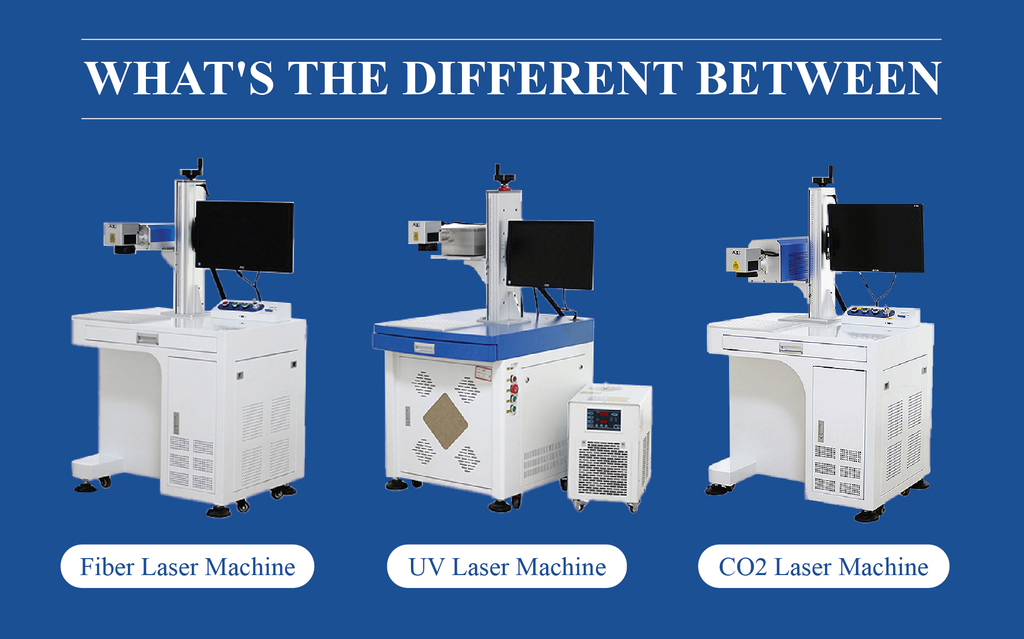FEATURED

When it comes to choosing a laser marking machine, understanding the differences between Fiber, UV, and CO₂ laser technologies is key. Each type offers unique benefits tailored to specific materials and applications. In this post, we’ll break down their features to help you select the best machine for your needs.

Fiber laser machines are renowned for their powerful metal processing capabilities. With imported laser sources and lifespans up to 100,000 hours, they require virtually no maintenance — making them a smart, long-term investment.
Suitable Materials: Stainless steel, aluminum, copper, some plastics
Typical Applications: Electronics, hardware, automotive parts
Key Benefits:
• High precision for micro-details and QR codes
• Fast marking speeds for mass production
• Low power consumption, no consumables
✅ Recommended For: Businesses processing mostly metals with high output demands

UV lasers operate at a short wavelength, allowing cold marking with minimal thermal impact. Ideal for heat-sensitive and delicate materials, they’re a top choice for ultra-fine, clean markings.
Suitable Materials: Glass, plastics, ceramics, crystal, leather, PCBs
Typical Applications: Pharmaceutical packaging, electronics, consumer tech
Key Benefits:
• Tiny beam spot delivers sharp, detailed edges
• Cold processing avoids burning or deformation
• High operational stability for precision work
✅ Recommended For: Users with strict detail and material sensitivity requirements

CO₂ laser machines excel at high-speed marking on a wide range of non-metal materials. Their mature technology and low running costs make them ideal for industries like packaging, woodwork, and leather goods.
Suitable Materials: Paper, wood, leather, glass, plastics, acrylic
Typical Applications: Packaging labels, crafts, product branding
Key Benefits:
• Fast marking boosts productivity
• Clear, high-contrast results for text and graphics
• Durable system with low maintenance needs
✅ Recommended For: Non-metal processing and cost-conscious businesses
| Feature | Fiber Laser | UV Laser | CO₂ Laser |
|---|---|---|---|
| Best For | Metals, some plastics | Delicate non-metals | Wide range of non-metals |
| Processing Type | Thermal | Cold | Thermal |
| Precision Level | High | Ultra-high | Moderate to High |
| Investment Cost | Mid to High (Low long-term cost) | High | Affordable |
| Common Industries | Manufacturing, electronics | Pharma, electronics | Packaging, crafts, signage |